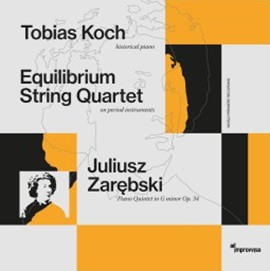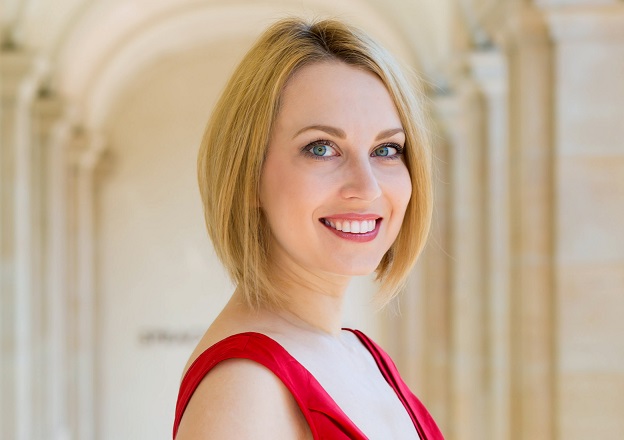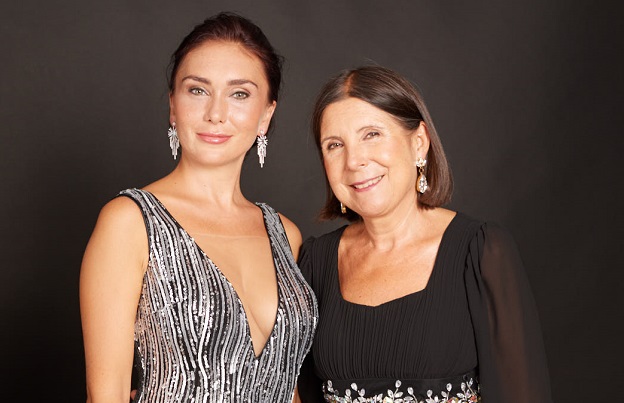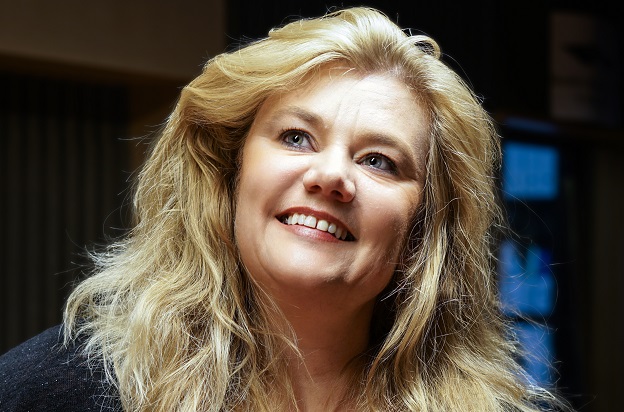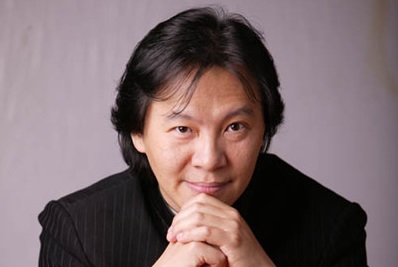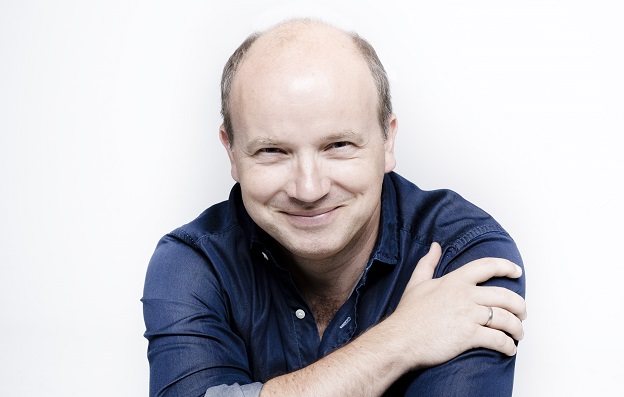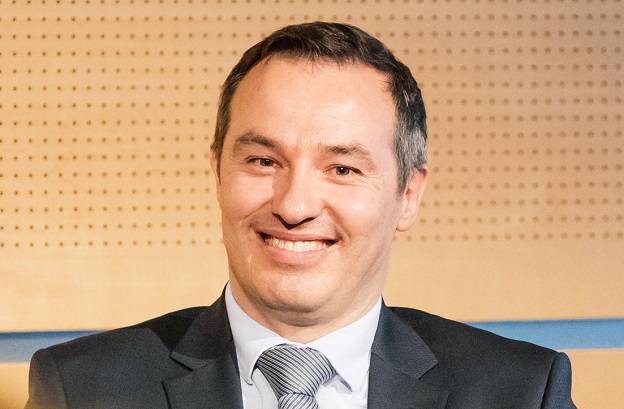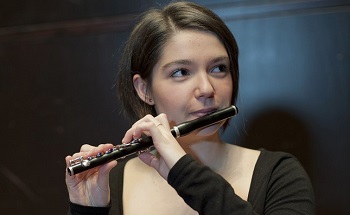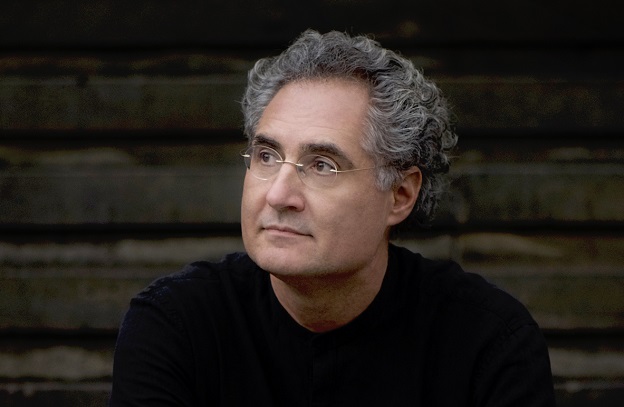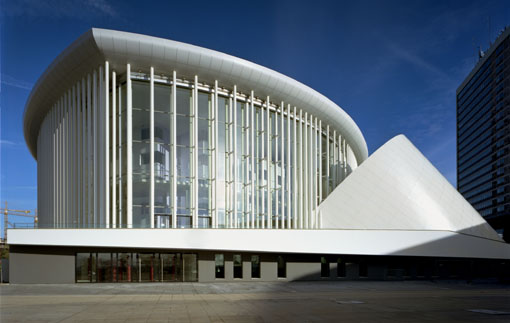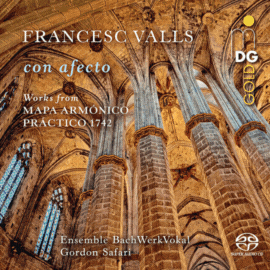Mich überrascht der melodiöse weiche Gestus vieler Stücke in Ihrem Programm Chinese Dreams. Wie empfinden Sie diese Kompositionen?
Alles wirkt auf Anhieb sehr vertraut. Da ist das Gefühl, man hat alles schon mal gehört. Es geht sofort ins Ohr. Ich hatte zuhause einen Tag lang Handwerker im Haus, während ich übte. Die haben abends die Melodien mitgesungen. So etwas passiert nicht gerade häufig bei klassischer Musik. Read More →
Ms. Gritskova, Ms Prinz, Sergey Prokofiev is one of the most famous Russian composers of the 20th century. But he is hardly known as a composer of songs, at least not in Central Europe. Is there a neglect of Prokofiev’s songs in Russia as well, or is this primarily a non-Russian phenomenon and then perhaps mainly due to the language barrier?
The Lied does not play a central role in Prokofiev’s oeuvre, although there are some fantastic jewels among his songs, and, by working on this genre, he was able to refine the lyrical qualities of his musical language. Even in Russia, the songs are not performed as often as Prokofiev’s piano or orchestral works or songs by classical Russian composers, like Tchaikovsky and Rachmaninov. Read More →
Ms. Adam, your new album is entitled Femme. Femme, singular. What can you say about this project?
Femme, la femme! Since we’re talking about the man in the singular. It’s not a musical report on women but a sharing of the emotions of THE woman. I’m not a feminist at all. My approach is more like a mirror. I’m a woman and I’m halfway through my life. So I needed to take a look inside myself, at what I’ve become. We’re used to looking at what we’ve done, looking at what we could do, and sometimes we forget to look inside ourselves. As a woman, what do I experience and feel? Read More →
The year 2020 marks the centennial anniversary of Maurice Gendron’s birth. In October 2015, Decca released a 14-CD collection (4823849) L’Art de Maurice Gendron, as a tribute to the legendary cellist of the twentieth century. This is a much anticipated monumental testament to the French master, published a quarter of the century since his passing. Listening to Gendron’s recordings again in chronological order, from 1952 to 1969, is a refreshingly different experience. Read More →
Herr Kluttig, nach 10 Jahren als Generalmusikdirektor am Landestheater Coburg wechseln Sie nun nach Graz. Sie halten sich demnach an die Regel von Lorin Maazel, nicht länger als 10 Jahre bei einem Klangkörper zu bleiben.
(lacht) Ich weiß nicht, ob man das so pauschalisieren kann und ob es eine richtige Jahreszahl gibt. Solange die Zusammenarbeit fruchtbar ist, und Musiker und Dirigent sich gefordert fühlen, kann man künstlerisch weiterkommen. Read More →
Herr Repusic, was hat Sie dazu veranlasst, in München einen Zyklus mit frühen Verdi-Opern zu machen?
Verdis frühe Werke sind hier eher selten zu erleben. Doch es ist bedeutende und anspruchsvolle Musik, die große Herausforderungen an die Interpreten stellt, was zum Beispiel Klangkultur, Zusammenspiel und Balance betrifft. Für die Besetzung des Münchner Rundfunkorchesters, dessen Chefdirigent ich seit Herbst 2017 bin, sind diese Werke ideal. Und sie geben uns die Möglichkeit, mit hochrangigen Solisten zu arbeiten, so bereits mit Marina Rebeka in Luisa Miller, Leo Nucci in I due Foscari und Ildebrando D’Arcangelo in Attila. Read More →
Hélène Boulègue, Sie haben soeben die zweite CD (Rezension) veröffentlicht, die dem Gesamtwerk für Flöte von André Jolivet gewidmet ist. Allerdings ist Jolivet keineswegs ein einfacher Komponist. Woher kommt diese Anziehungskraft für seine Musik?
Als ich zum ersten Mal Musik von Jolivet hörte, muss ich dreizehn oder vierzehn Jahre alt gewesen sein. Ich war in meinem Zimmer mit einer meiner Flöten-CDs als Hintergrundmusik und machte meine Hausaufgaben. Und plötzlich erregte die Musik meine Aufmerksamkeit. Ich hörte auf zu lernen, hörte ein paar Sekunden lang zu und eilte dann zum Plattencover, um zu sehen, worum es ging. Ich hatte gerade die Einleitung zum Chant de Linos gehört, einem der am häufigsten von Flötisten gespielten Stücke von André Jolivet, und ich beschloss sofort, dass ich es eines Tages spielen würde. Read More →
Herr Kirschnereit, Ihre letzte CD heißt Beethoven Unknown (Pizzicato-Rezension) und stellt selten gespielte Werke des Meisters vor. Gibt es denn wirklich noch unbekannte Stücke von Beethoven?
Also, der Titel ist schon etwas provokant und muss auch relativ betrachtet werden. Alle Werke Beethovens sind verlegt, es gibt keine verstaubte Partitur mehr auf irgendeinem Speicher oder in irgendeinem Archiv. Read More →
Herr Pochekin, erzählen Sie mir etwas über die Geschichte dieses Projekts?
Ein Jahr zuvor hatten Valentin Uryupin und ich zusammen mit dem Russischen Nationalorchester die ‘In Spe’-Sinfonie von Vyacheslav Artyomov mit Solovioline und Cello für das Label Divine Art aufgenommen. Die Zusammenarbeit lief so gut, also beschloss ich, mit dem gleichen Team weiter zu machen. Meiner Meinung nach ist das RNO einfach vorbildlich in der Aufführung russischer Musik. (Pizzicato-Rezension) Read More →
Für die Eröffnung der Luxemburger Philharmonie im Jahre 2005 komponierte Krzysztof Penderecki im Auftrag der Luxemburger Regierung seine 8. Symphonie, Lieder der Vergänglichkeit. Remy Franck erinnert sich an die Vorbereitungen. Read More →




